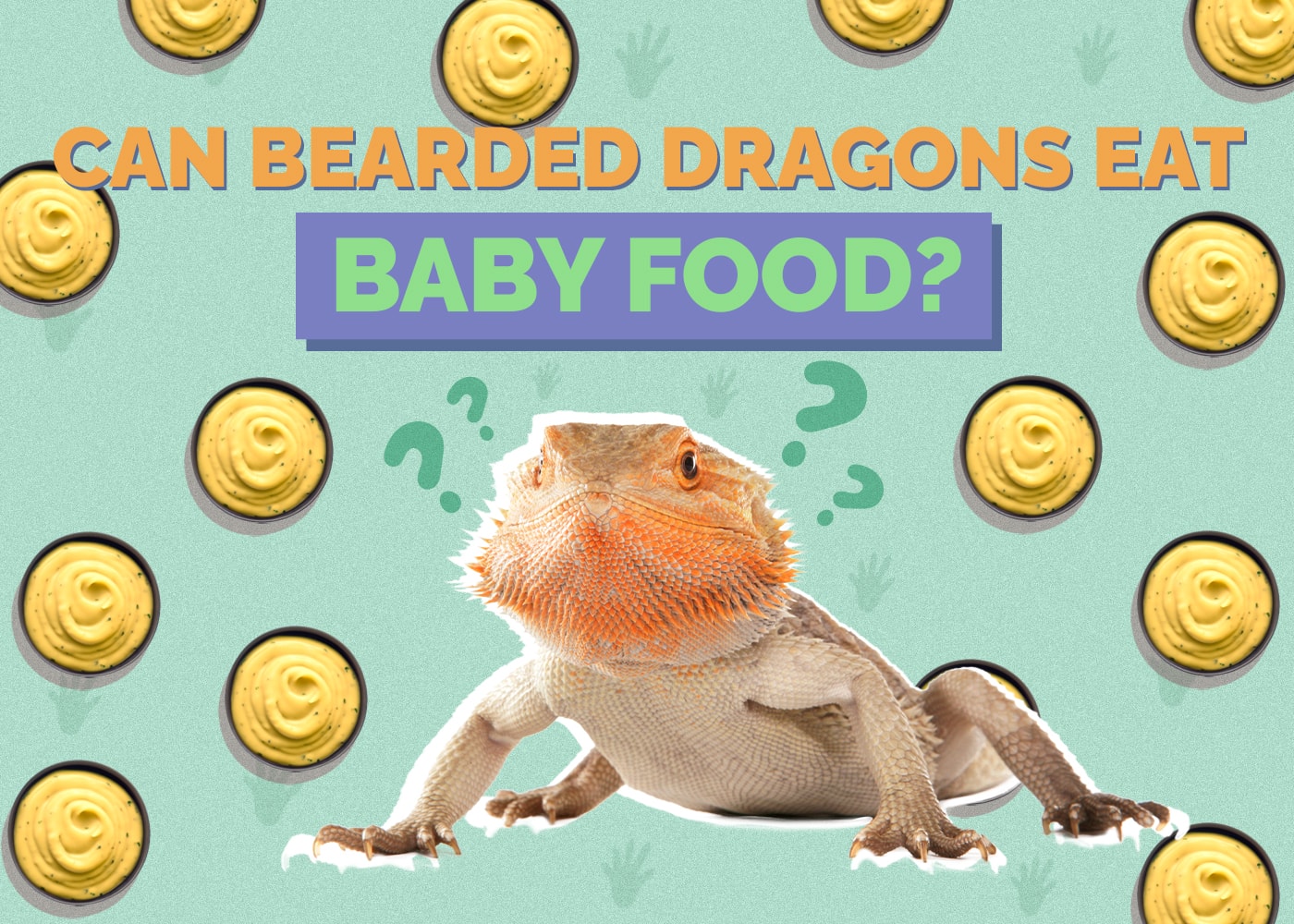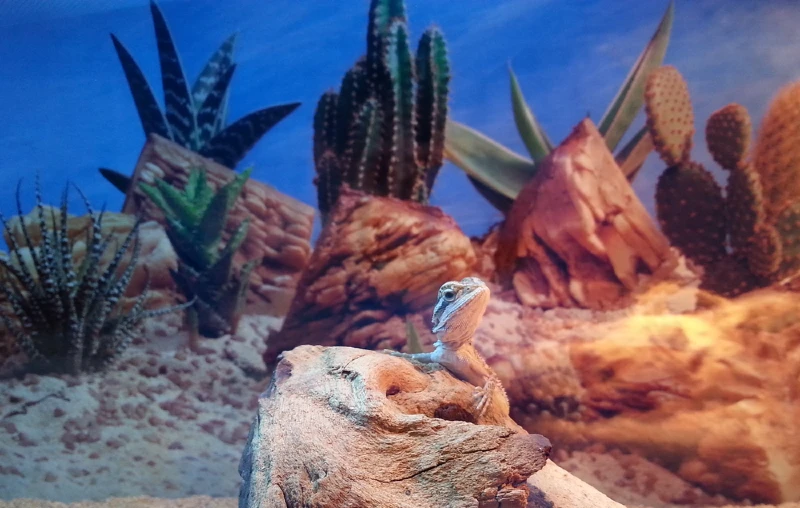Can Bearded Dragons Eat Sweet Potatoes? Vet-Approved Facts & FAQ
Updated on
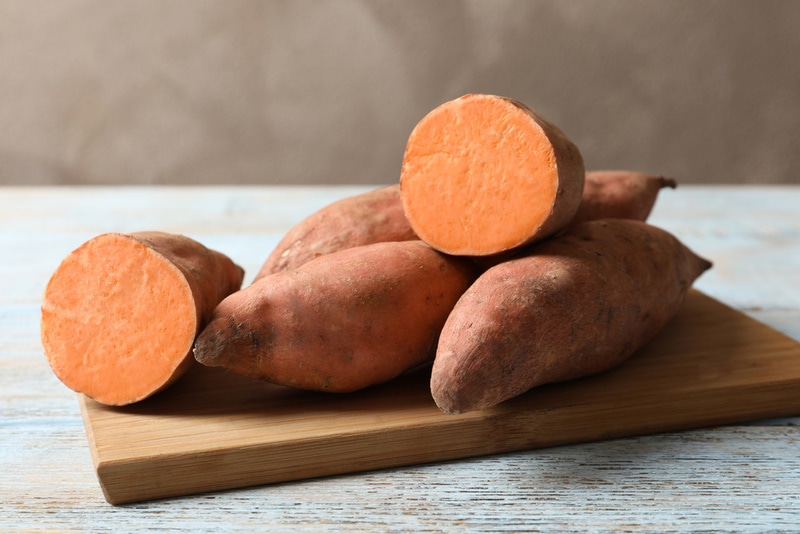
Sweet potato is an inexpensive vegetable that is easy to come across in most grocery stores, making it a great option for many people to eat. It’s nutritious and tasty, and many people use it as a replacement for higher starch foods, like white potatoes. Is sweet potato something that you can share with your bearded dragon, though? Yes, bearded dragons can eat sweet potatoes.
Can Bearded Dragons Eat Sweet Potatoes?
In fact, many bearded dragons enjoy eating sweet potatoes. While they are a healthy food that your beardie will probably like, you do need to feed them in moderation to support your bearded dragon’s health.
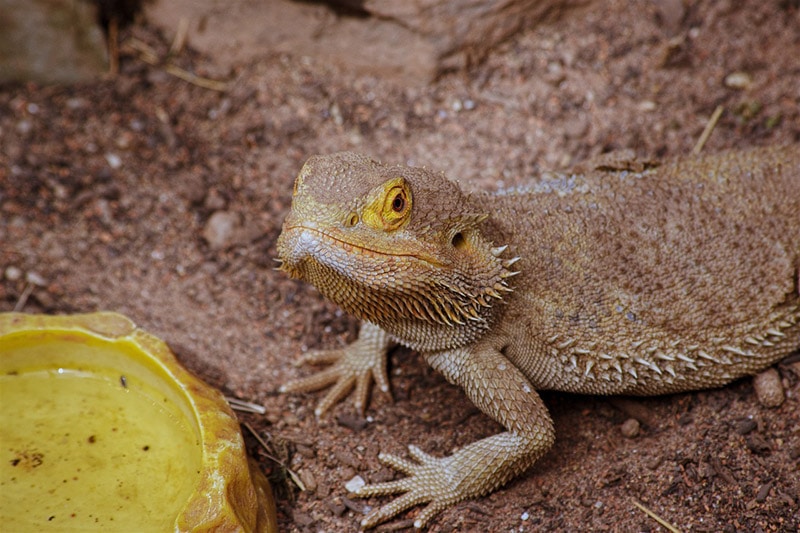
How to Feed Sweet Potatoes to Your Bearded Dragon
Sweet potatoes make a delicious treat for your bearded dragon in moderation. Sweet potatoes contain carotene, which is a form of vitamin A that many reptiles have difficulty converting into a usable form of the vitamin. As an omnivorous species it is not clear how efficient their ability to use the vitamin A in sweet potatoes is, relying on this food to provide them with adequate levels of dietary vitamin A could contribute to developing a vitamin A deficiency.
The biggest issue with sweet potatoes, though, is that they have a calcium-to-phosphorus ratio that is not appropriate for bearded dragons. High levels of phosphorus can result in the body trying to balance the levels and therefore removing calcium from the bones, which can lead to metabolic bone disease. The appropriate calcium-to-phosphorus ratio for bearded dragons is between 1.5:1 to 2:1, but sweet potatoes have a ratio of 0.6:1, which means that phosphorus exists in the food in higher amounts than calcium does. This is the opposite of what is recommended.
Because of the risks associated with feeding sweet potatoes, you should limit your bearded dragon to a few small bites of cooked sweet potatoes only one to two times per week.
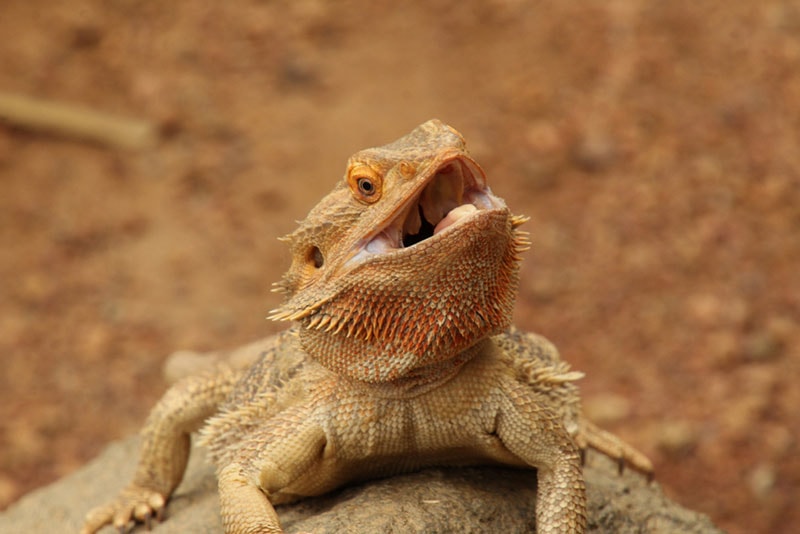
How to Prepare Sweet Potatoes for Your Bearded Dragon
Interestingly, many bearded dragons seem to prefer raw sweet potatoes, and unlike white potatoes, sweet potatoes are non-toxic when raw. Make sure to cut the sweet potato pieces into bite-sized pieces for your beardie to prevent choking, though. If your bearded dragon doesn’t seem interested in raw sweet potatoes, you can offer them plain, cooked sweet potatoes.
However, you should avoid giving them fried sweet potatoes or sweet potatoes that have been cooked with spices and seasonings. Salt and seasonings can upset your bearded dragon’s stomach, and some are toxic for beardies. Fried and oily foods are out of the question since these can also make your bearded dragon sick.
Stick to boiling, or steaming sweet potatoes for your bearded dragon. Use cooking methods without oil or butter, using water as the moisture needed to cook the sweet potato all the way through.

Final Thoughts
Sweet potatoes are a healthy treat for your bearded dragon to eat once every week or so. They don’t have an appropriate ratio of calcium to phosphorus for routine feeding, though, so overfeeding can be detrimental to the health of your beardie. They are an omnivorous species and require a balance of insect and vegetable matter to stay healthy.
Like most fruits and veggies, sweet potatoes are best fed as part of a balanced diet. Stick to safe foods for daily feeding, only offering extra treats and interesting foods on occasion.
- You Might Also Be Interested In: Can Bearded Dragons Eat Grapes
Featured Image Credit: Africa Studio, Shutterstock


